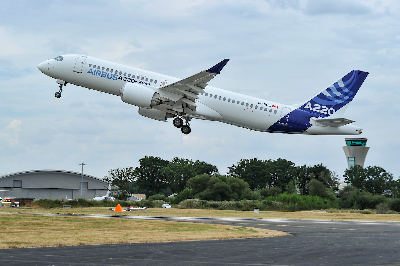
It seems rather fitting that the Aerospace Sector Deal was launched on the same week as International Civil Aviation Day.
Aviation is now central to so much of our lives, both directly and indirectly. This has become much clearer in the face of Brexit, and risks a no-deal poses to the movement of goods and people.
But today is not about Brexit, it’s about how aviation helps keep us connected with the world, through the international movement of goods and people. It is central to both our economy, and the economies of countries around the world, helping businesses and fostering tourism.
In 2017, worldwide annual air passenger numbers exceeded four billion for the first time. Fundamental to the facilitation of this is the actual aircraft people fly on.
Sustainable Aviation
Due to such frequent air travel, there has been an increased focus on efficiency and sustainability of aircraft in recent years.
Growth in UK air travel since 2006 has been carbon neutral – with 10 per cent less aviation fuel being used, despite nearly 21 million more passengers carried a year. The current generation of commercial aircraft, including the A330, A350 and 777MAX, are 80 per cent more fuel efficient than their predecessors in the 1960s.
With the Future of Flight Challenge announced in the Aerospace Sector Deal, UK industry will now also focus on the development of electric and autonomous flight, which would contribute enormously to the sustainability of aviation.
Women in Aviation and Aerospace Charter
This year we’ve also seen a commitment from the aviation and aerospace sectors to increasing diversity in the industry with the launch of the Women in Aviation and Aerospace Charter.
Since its launch at Farnborough International Airshow in July, the Charter now has 75 signatories and signals a strong sense from the industry that increased female representation is important. The Charter’s signatories include companies from across both aviation and aerospace, being co-chaired by women from Virgin Atlantic and Airbus.
As ADS Chief Executive Paul Everitt said:
“A balanced workforce has been proven to boost productivity and morale so working towards gender equality is not only the right thing to do – it also makes good business sense.
“This Charter allows companies to set their own path to gender balance in their organisation, recognising that there is no one-size-fits-all policy; I believe this will help create more sustainable gender parity.”
2018 has seen great steps towards a balanced and sustainable future in aviation and aerospace, something industry is pleased to celebrate on this International Civil Aviation Day.





